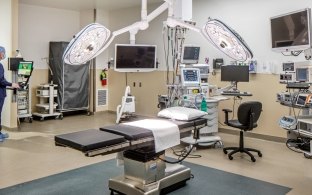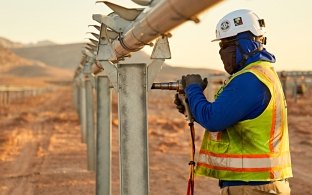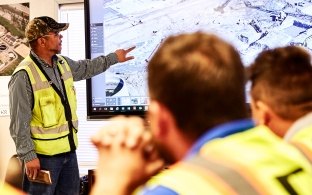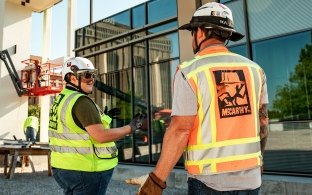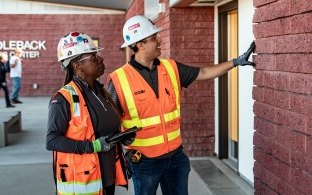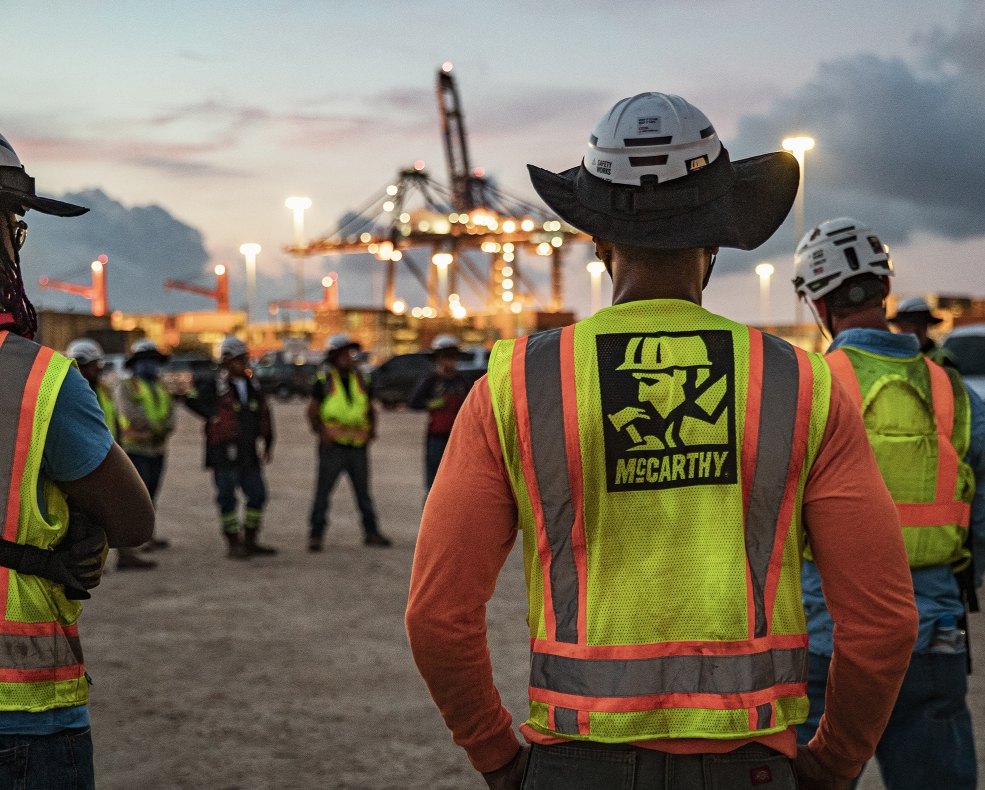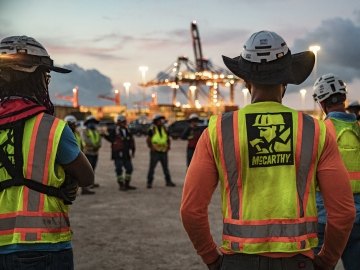Beyond the Build: How Having the Right MEP Team Reduces Risk and Improves Project Quality
When collaboration, expertise, and training come together, MEP teams do more than install systems — they create the foundation for facilities that perform reliably, efficiently, and with lasting value.
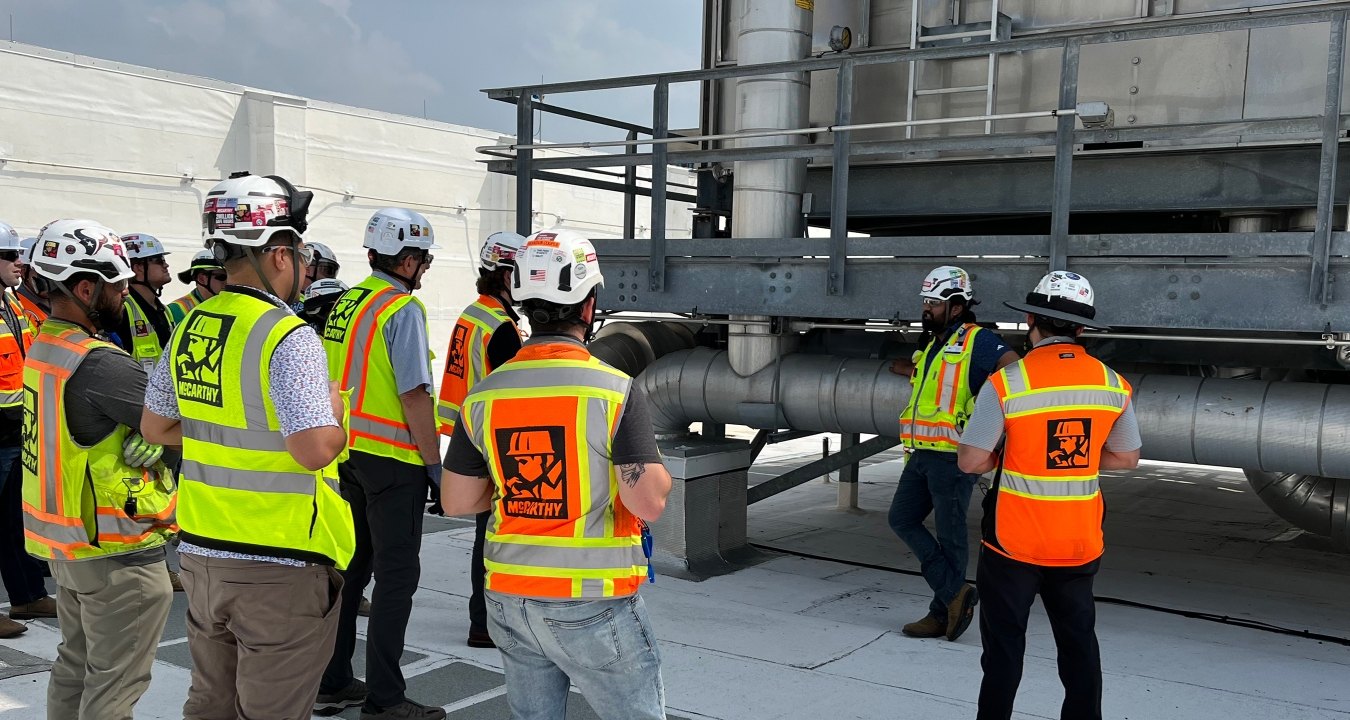
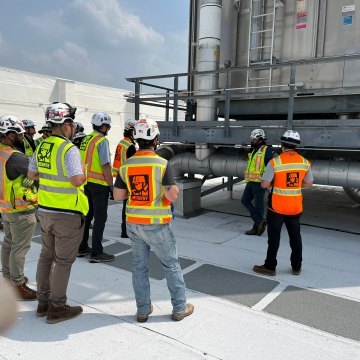
Mechanical, Electrical, and Plumbing (MEP) systems are the essential systems that breathe life into modern facilities. But getting them right takes more than technical know-how — it takes open communication and true teamwork. MEP expertise is a requirement; it’s also a key advantage that can make or break a project’s long-term success.
Consider the stakes: MEP systems can account for nearly half a project’s cost and a significant portion of its risk. From hospitals with sensitive medical equipment to mission-critical data centers, a system failure can have significant consequences. An effective MEP team is crucial to minimizing risk and improving long-term project success. With the right MEP team integrated from the get-go, making sure every stakeholder — from the facilities team to trade partners and designers is aligned and working together, systems are built right the first time.
Skilled MEP Teams Install More than Systems — They Shape Outcomes
Great results happen when everyone works together. For projects with complex MEP requirements to succeed, technical expertise is a must, but because MEP teams are deeply integrated with every other discipline on the job, it is essential. From day one, MEP specialists should join forces with facilities staff, end users, specialty systems designers, trade partners, equipment start technicians and project architects.
Everyone brings something to the table, and every voice matters. This open, hands-on communication helps the MEP team detect minor issues before they become big ones. By aligning all input early, systems are designed and built to perform as intended, with fewer surprises — even in the most complex environments.
What Should You Look for in a MEP Partner?
When evaluating a construction partner's MEP capabilities, owners should ask:
- What specialized training do your MEP teams undergo?
- How do you ensure consistent quality across complex system installations?
- Can you provide project examples of how you resolved critical challenges in the past?
- How have you invested in workforce development to support MEP excellence?
- What evidence can you share of your ability to deliver complex MEP systems successfully?
- What measurable outcomes has your training achieved?
- How do you promote a culture of continuous improvement and innovation?
Continuous Training: Building Experts, Not Just Installers
Staying ahead in today’s construction environment means building a team that’s always learning. When selecting a building partner, look for one who invests in continuous MEP training — not just once, but at every stage of the project.
When people have ongoing opportunities to learn, they confidently address challenges earlier, work more effectively with partners, and ultimately deliver stronger outcomes. Training in this sense isn’t just about knowing how to install a system — it’s about understanding how each decision affects performance, collaboration, and long-term reliability.
Plus, investing in a team’s growth brings benefits that extend well beyond the jobsite. It helps create a culture of curiosity, shared accountability, and pride in delivering facilities that meet the needs of everyone who relies on them.
Design Decisions That Last a Lifetime
The decisions made during design and installation shape how a facility performs for decades. That’s why a successful MEP partner looks beyond immediate construction needs to consider how these critical systems will perform and serve people for years to come.
By engaging early with facilities teams, engineers, designers, trade partners, and architects, we help prevent design missteps and ensure every system is built to deliver lasting value. The best design decisions don’t just solve today’s challenges — they keep working for the long run.
Delivering Owner Confidence and Value
For owners, this long-term reliability translates directly into confidence that your facilities will perform the way they should. Successful delivery of complex projects goes beyond technical execution — it's about providing peace of mind that critical systems will be designed, installed and maintained through a collaborative process.
When owners partner with MEP experts who understand how these vital systems work together, they get more than just a building … they receive a dependable, well-engineered space that’s built to minimize risks and keep their business running smoothly.
Industry Recognition for McCarthy Training Excellence
Our innovative approach to MEP through the firm’s unique MEP Advanced Commissioning Training was recognized by Training Magazine as a 2024 Training Hall of Fame Outstanding Training Initiative — highlighting our commitment to developing skilled technical professionals and helping deliver reliable projects and greater certainty for clients.
Training Impact by the Numbers:
- 28% increase in MEP assessments year-over-year
- $180K realized cost savings in 2024
- $36M in potential cost savings identified through early detection
The Bottom Line:
Project certainty results from a combination of technical expertise, team collaboration and thoughtful planning. The McCarthy MEP team serves as the connective hub — engaging all stakeholders, aligning systems, and delivering outcomes based on shared objectives. Prioritizing accuracy from the start minimizes costly surprises and results in facilities built to perform for the long haul.
About the Author
Eric Monsen is Vice President, MEP Services for McCarthy Building Companies, Inc. Since joining the company in 2004, Eric has applied his expertise in Mechanical, Electrical, and Plumbing (MEP) systems to a variety of healthcare and laboratory projects throughout Southern California. A graduate of Santa Clara University with a degree in Mechanical Engineering, Eric holds a Master of Business Administration (MBA) from California State University, Long Beach.
